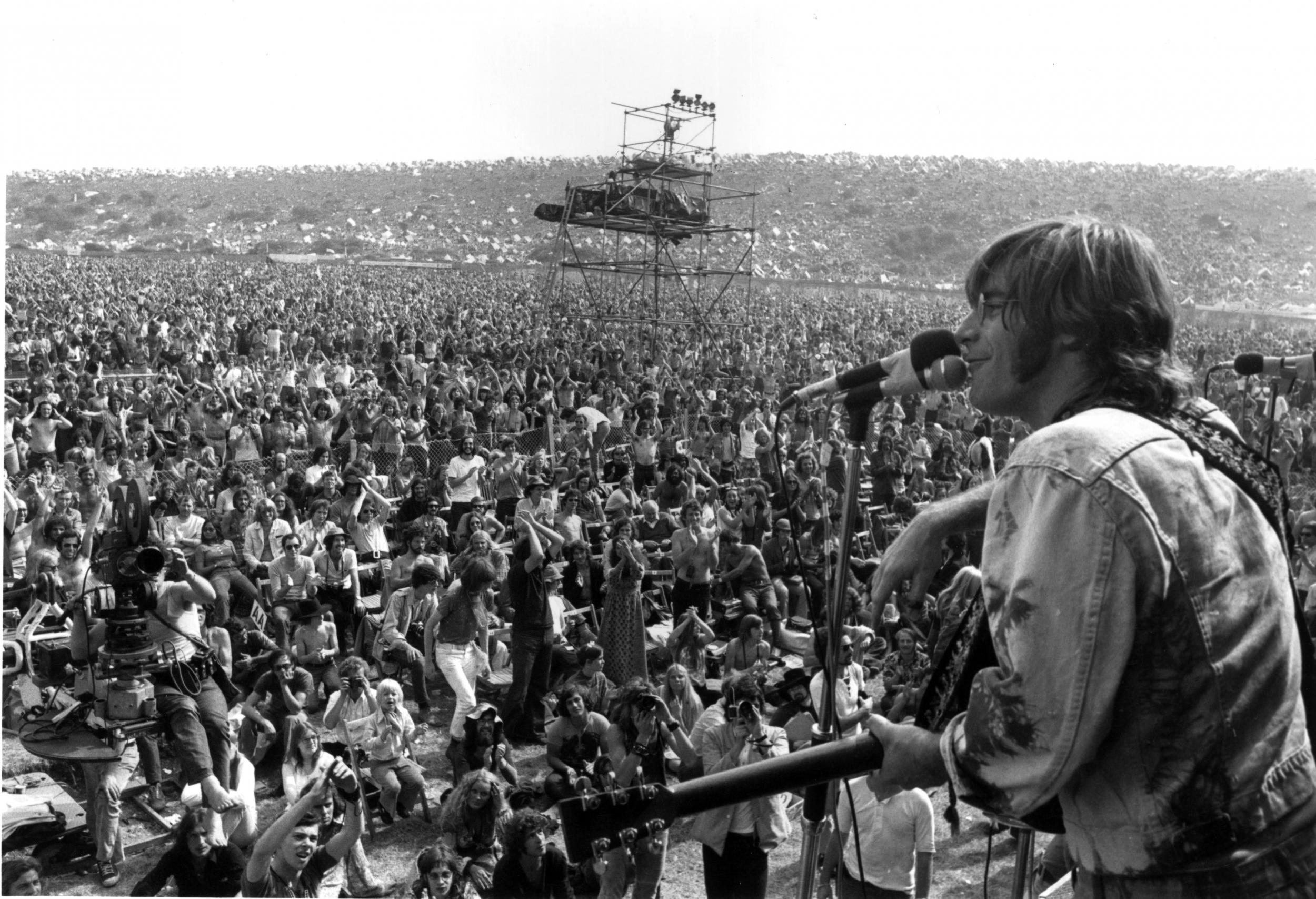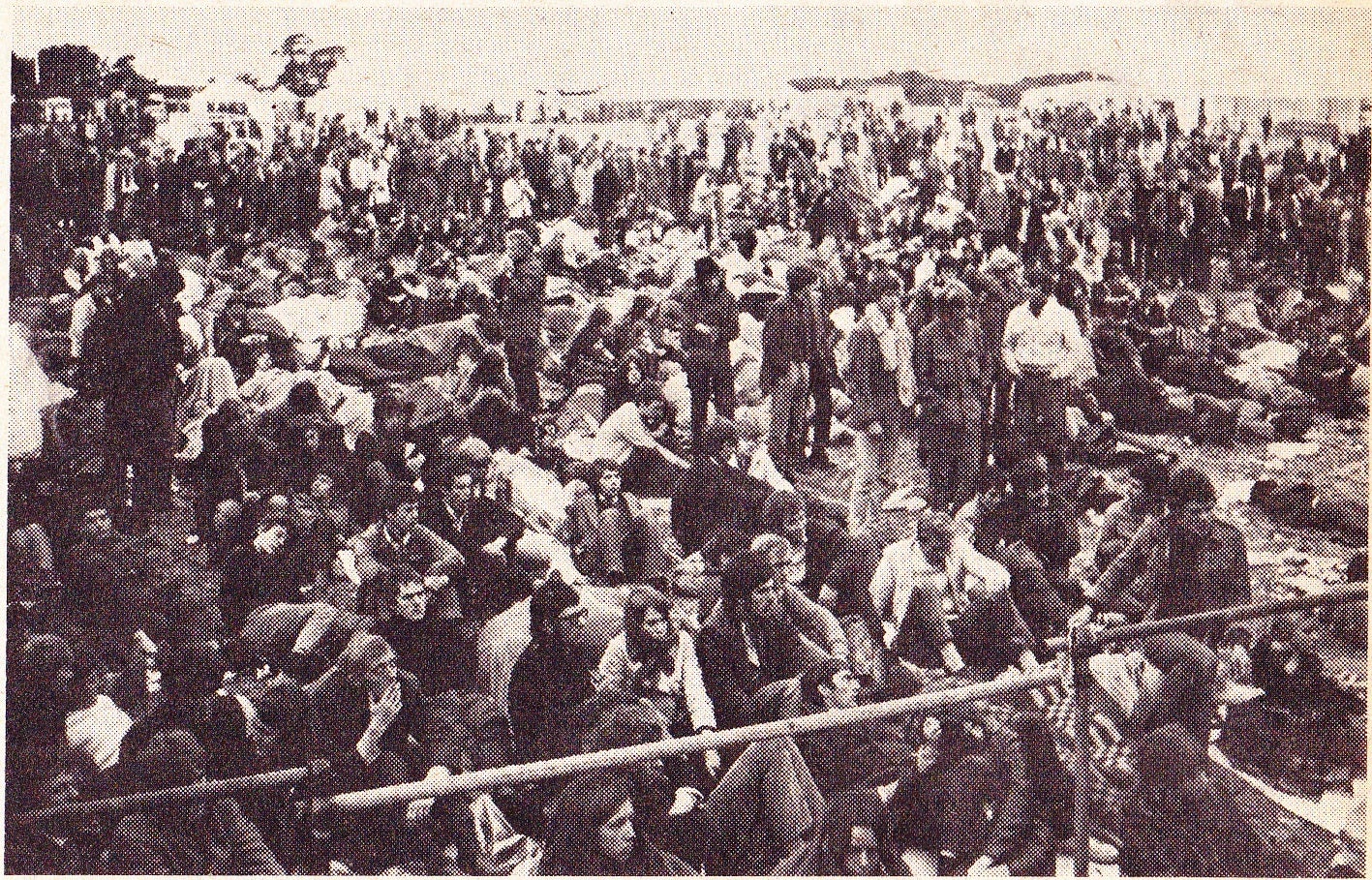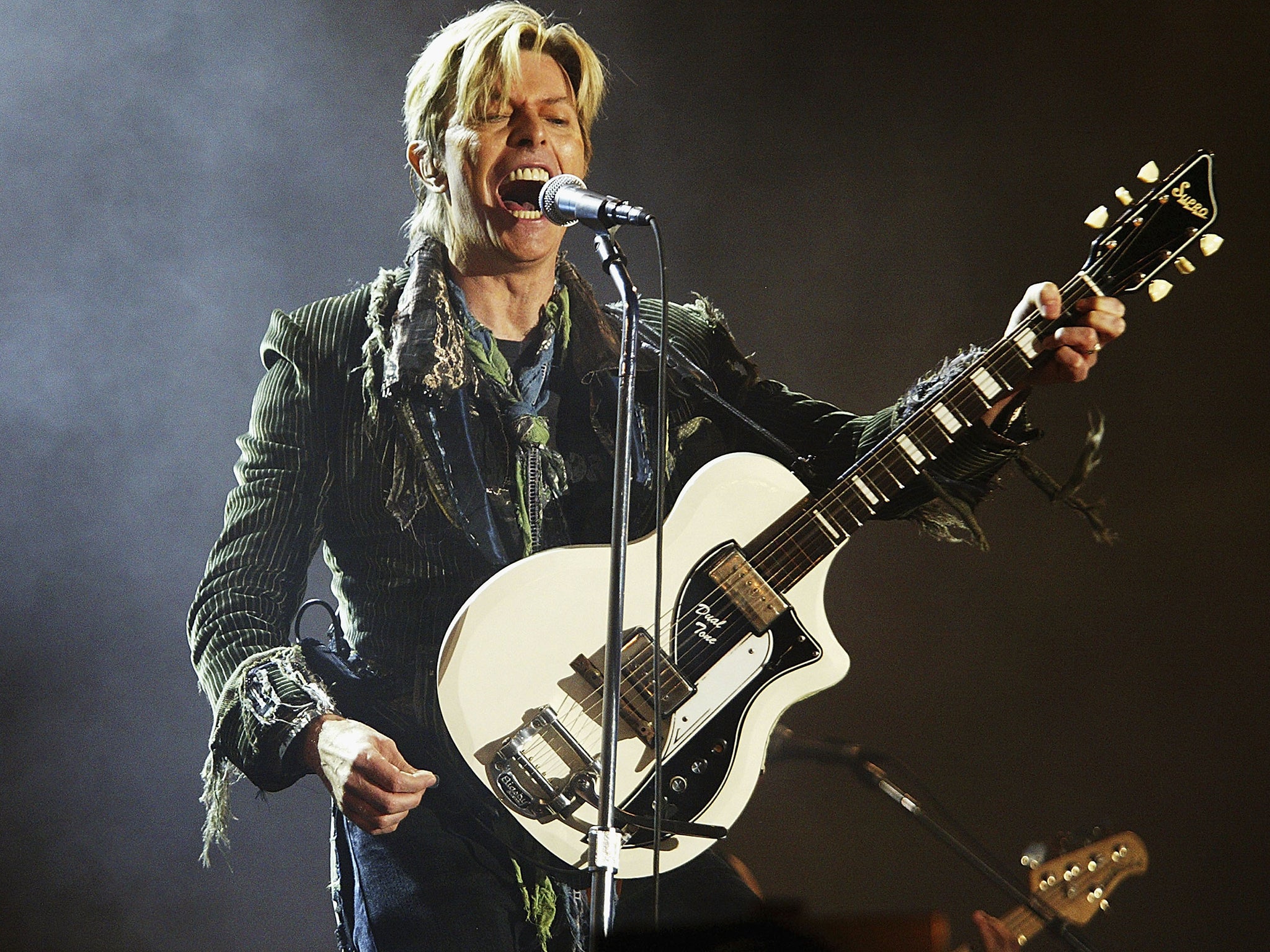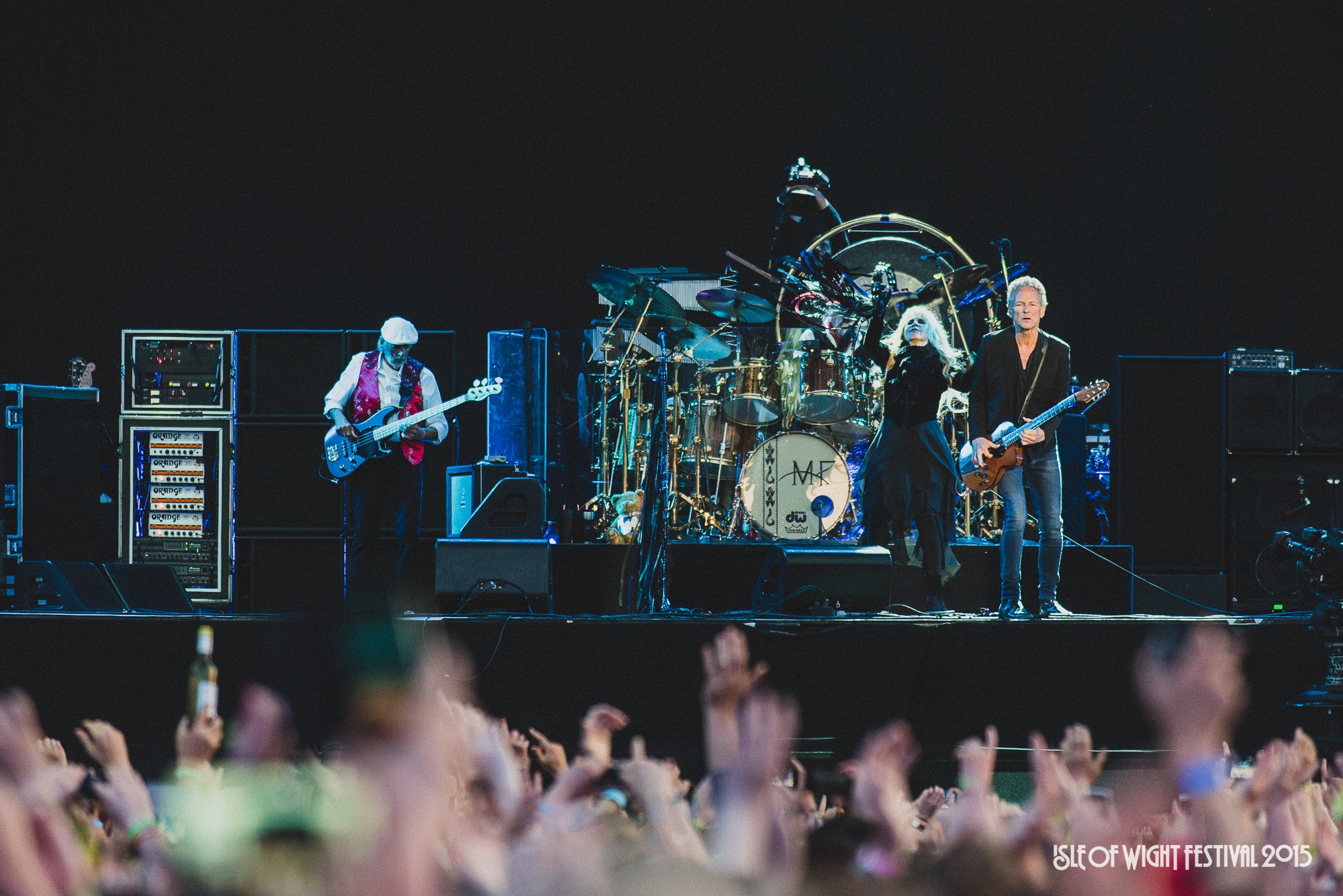Isle of Wight Festival at 50: How Europe's Woodstock was killed off by a Tory MP but came back from the dead with help from David Bowie
Today marks the golden anniversary of the festival that had to get around a 1971 act of parliament to be allowed to take place at all

Your support helps us to tell the story
From reproductive rights to climate change to Big Tech, The Independent is on the ground when the story is developing. Whether it's investigating the financials of Elon Musk's pro-Trump PAC or producing our latest documentary, 'The A Word', which shines a light on the American women fighting for reproductive rights, we know how important it is to parse out the facts from the messaging.
At such a critical moment in US history, we need reporters on the ground. Your donation allows us to keep sending journalists to speak to both sides of the story.
The Independent is trusted by Americans across the entire political spectrum. And unlike many other quality news outlets, we choose not to lock Americans out of our reporting and analysis with paywalls. We believe quality journalism should be available to everyone, paid for by those who can afford it.
Your support makes all the difference.Fifty years since the inaugural event, the Isle of Wight Festival is still revered as the Woodstock of Europe – but its links to the infamous US gathering of all things counter-culture is more than hazy imagery of hippy days gone by.
In fact its place in music folklore was cemented when Bob Dylan played the 1969 festival to protest against the pressure he was under to play the Woodstock event, according to IOW founder Ray Foulk.
The folk singer, who had been on a three-year hiatus from performing, had taken refuge in Woodstock as a peaceful artistic retreat and was, according to Foulk, annoyed that a load of people had descended on his home and were “crawling all over his property.”
According to Foulk, a major factor in him persuading Dylan to play the 1969 IOW festival was because Dylan regarded Woodstock as “the sum total of all that bullsh*t”. Instead of playing the US event, which was also held in August, he snubbed one half of his management team’s requests and travelled to the UK to headline the island festival instead – two weeks after Woodstock.

In the end the Dylan gig was somewhat of a disappointment, according to Foulk, because the set only lasted an hour. But having a name like his on the bill meant other bands such as The Who were clamouring to be included and 150,000 people crammed onto the festival site for three days.
Foulk, who was only 23 at the time – but had embellished his age to 27 to sound more legitimate in order to secure Dylan – says: “It was pretty amateurish but when we signed Dylan it suddenly became a very serious thing. People came from all over Europe’”
That year put the festival on the map and the following year attendance more than doubled to around an estimated 500,000 people, thanks to a line-up including Jimi Hendrix, The Doors and Miles Davis. Reports at the time had the numbers as high as 700,000 – but the true figures will never be known because so many people arrived without tickets.
Foulk says festivals then were as much about the protest and kinship as they were the music: “People were coming for a pilgrimage and held ethics and ideas of a better way of doing things.”
But half a million hippies – an amount surpassing Woodstock’s 400,000 the year before - arriving on the island with a population a fraction of that was not well received by locals. Local Tory MP Mark Woodnutt and the authorities were frightened, says Foulk, “they thought we were all going to riot and were determined to not let the festival go on again.”
Enjoy unlimited access to 100 million ad-free songs and podcasts with Amazon Music
Sign up now for a 4 month free trial (3 months for non-Prime members)
Enjoy unlimited access to 100 million ad-free songs and podcasts with Amazon Music
Sign up now for a 4 month free trial (3 months for non-Prime members)
In fact, so worried were the authorities that large gatherings equalled communist riots that the then government set in motion a bid to ban by law open air gatherings of 5,000 or more altogether – something which had it been successful would have stopped the likes of Glastonbury ever getting off the ground.
Fortunately the bill was never passed nationally, but locally the authorities were successful in pushing through an act of parliament banning any open air festival of more than 5,000 people from taking place on the Isle of Wight again, without a special licence from the council.
And the ban effectively kept festivals off the island for more than 30 years, until current organiser John Giddings, gripped with the romantic idea of resurrecting it made the journey across the Solent to convince the council to allow it to go ahead, after Annie Horne, the then Director of Wight Leisure for the council, persuaded him to try.
“I started it by mistake if the truth be known, I went in for it because I’m a music promoter. The Queen’s Jubilee was the excuse to restart it 2002 and I was the only person stupid enough to give it a go,” says Giddings.
“I remember the ferry journey as I went over to try to convince the council to let us hold it, and I saw the sun glinting across the Solent and I thought this is it, it’s part of the attraction, it’s a holiday island. We’ve only had 4-5 days of rain in 75 days of the festival – in 2012 we had a month’s rain in a day, but apart from that we’ve been very lucky – that’s part of the attraction.
“There were 15 members of the council, and they voted it through 8-7, we got it by a vote.”
Giddings says at the time the council was worried the crowds were going to cause chaos: “I think they thought people were going to come over and wee in their hedges, but now it brings £10m into the local community because people generally stay longer than the festival. It creates tourism.”
But like the first iterations of the festival in the 60s, the first couple of years of the reincarnation were not plain sailing – making losses until Giddings managed to pull in favours from David Bowie and The Who – both of whom he had worked with for many years on some of the artists’ most famous tours – including Bowie’s Serious Moonlight Tour.

“If I hadn’t been in the music industry I wouldn’t have pulled it off. So he (Bowie) did me a favour doing it, and it turned out it was the last show he ever did in the UK.”
Annie Horne recalls the Bowie gig as her highlight moment over the years: “David Bowie’s performance of Heroes in 2004... I was literally rooted to the ground, and speechless.”
The Bowie and The Who hit allowed Giddings the momentum he needed to make the festival a viable business, after two years of losses.
“In the first year it lost the council half a million, in the second year I took on the financial responsibility and I lost half a million… People were looking at me as though I was a bit stupid, but I believed in it, it’s the Woodstock of Europe.
“The third year I got Bowie and The Who and I broke even, and after five years we made a profit. People think festivals make a lot of money, but when you think we spend £1m on police and security because of the threat of terrorism now, which no one wants to talk about, it’s not a cheap hobby – but it’s the most exciting thing you can do.”
The festival has attracted some of the biggest names in music over the years. Artists like going to the festival because of the superior sound quality and small festival vibe. Feeder front man Mark Nicholas has performed at the festival on several occasions and will be performing again this year in the Big Top.
“Some of the bigger festivals, not naming names, are so quiet you can’t get into it. Isle of Wight is one of the only bigger festivals that has the atmosphere of a smaller one. It’s really well set-out. It may just be the name, but there is something about it, since I was a kid or something – it’s the UK’s version of Woodstock – we love playing there.”
Feeder also played back at the festival in 2005: “We had a blinding 2005, the sound was so good, we were third from top, I think Travis were the headliners, and it had been a pretty big year for us, we’d had a pretty big album – it was quite a high point, a career high.
“It’s a real honour for a band to play there, it’s one of mine, if not my favourite festival – John Giddings has got it right.”
Of the sound quality Giddings says: “I take great pride in the sound. There’s something about sound in the open air, it gives people a bonding experience.
“I am a music fan and I spend a lot of time and energy based on what I want. I go to other festivals and I can’t believe they have this huge mixing desk right in front of the stage! It completely spoils the view, why build this beautiful thing and then put something straight in front of it? So we have one either side, one for sound and one for lights.
“I book bands from the past, present and future, it wasn’t a deliberate thing initially, but that’s how I do it now and it creates a great vibe with people of all ages, it’s not druggy.”
After the Bowie year the acts became easier to sign. The festival had already sold out in 2007 when the Rolling Stones agreed to come on board: “They were a last-minute addition, and Mick actually asked for an earlier spot! He said ‘I’m not sure people will want to hang around, they hadn’t bought the tickets to see us’ – it’s interesting that he thought that, but that’s who he is, they aren’t who they are today by not caring.”
A glance at some of the names who have played the festival in the years since is like reading a who’s who of rock royalty – Fleetwood Mac, Tom Petty and the Heartbreakers, Amy Winehouse – moments both Giddings and Nicholas remembered well.
Nicholas said: “I watched Tom Petty in 2012. I was singing so loud I lost my voice afterwards from singing along… It’s just his voice, he’s so laid back. I just thought he could go on doing it for years.”
On Petty, who died in October 2017, Giddings said: “Tom Petty was one of the classiest acts of all time. He really enjoyed himself when he played and he came in afterwards and said thank you for booking him. Mick Fleetwood was the same, he came back onto the stage after Fleetwood Mac had finished to say thank you to the crowd – the rest of the band drove off and left him and were all waiting for him at the helicopter! What a moment Fleetwood Mac playing was.”
Adding to his memories of the festival Giddings said: “Getting Amy Winehouse to sing with Mick Jagger was a highlight. She wasn’t sure she wanted to do it, and I said you’ve got one of the best voices out there and he’s one of the greatest rock ‘n’ roll performers in the world, so she agreed to hang around and she sang with him on the Sunday. It was good actually, it was when she still sounded good’”
But Giddings says his favourite memory is not of a classic rock act, but watching the reaction of the crowd during a more contemporary artist’s set.

“My favourite memory was when Jay-Z was playing one year and Kanye West went on stage to join him – I was looking out at the crowd and a shiver went up my spine. I was watching from the stage and then I turned around and saw Beyonce was there too. I couldn’t get any more excited. I watch the audience because you can tell how good an act is by how they deliver to 50,000, and I just thought ‘This is it, I’m not sure how much better my life can get from this point’”
“I really appreciate people coming and I hope they enjoy themselves, that’s what it’s about. If I get run over on Monday morning I wouldn’t mind.”
This year for the golden anniversary, Kasabian headlined the Friday, Depeche Mode on Saturday and the Killers on Sunday.
Join our commenting forum
Join thought-provoking conversations, follow other Independent readers and see their replies
Comments